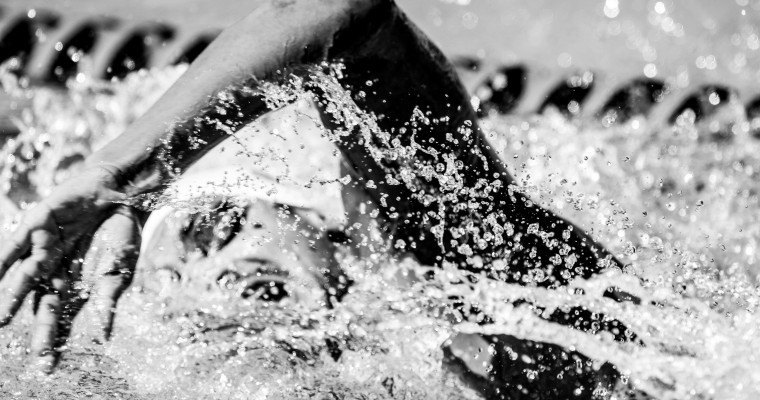Courtesy of Tessa Cady, SwimSwam Intern. Follow: @tessa_Katie
-
Catch
Non-swimmers will automatically think of the term “catch” as to grasp or hold onto something; for example, to catch a ball with your hands. In swimming, catch refers to the correct position the hand has to enter the water. Each of the four main strokes has a different catch.
-
Turn
A turn is commonly known in terms of driving to rotate a car in a different direction. In swimming, a turn refers to a somersault done at the wall to reverse the direction of swimming. There is also an open-turn used in breaststroke and butterfly, where there is no somersault.
-
Top or bottom
This is a unique phrase used by swimmers in practice everyday. This phrase is used to indicate when to leave for a particular interval. When picturing a clock, the number 12 is at the top of the clock and the 6 is at the bottom. The 12 refers to either 0 or 60 seconds and the 6 represents 30 seconds. When a coach states “leave on the bottom”, it means a swimmer will leave when a clock is at 30 seconds.
-
Anchor
In swimming, an anchor refers to the last of four positions in a relay, not a heavy device made of metal used to connect a vessel to the bottom of a body of water. The fastest person on the relay usually fills this position.
-
Individual Medley
Individual Medley is an event in swimming that incorporates all four of the competitions strokes. The order is butterfly, backstroke, breaststroke, and freestyle.
-
Meet
It is not uncommon for non-swimmers to refer to competition as a game. In swimming, competition is called a meet.
-
Paddle
A paddle used for training is similar to that of a paddle or oar used to row a boat through water. A swimmers paddle is a thin plastic device that is slightly larger than ones hand used to assist pulling through the water. A paddle also has some small holes to allow water to pass through, making it less stressful on a swimmers shoulder to use a paddle. It also has a two thin rubber hands to attach the paddle to the swimmers hand.
-
Split
Swimmers are always concerned about their splits from their races. A split is a time from a portion of a swimmers race. These are a useful for swimmers practice and help determine where during their race when their endurance begins to fall off.
-
Taper
Taper is always a difficult term to describe to non-swimmers. Taper is when a swimmer decreases the amount of yards swam in practice about a week before a final meet. This increase in rest allows a swimmer to reach a peak performance for their final meet of the season.

I swam and coached in Minnesota and I’ve never heard the term up or down.
No top or bottom to digital time
Yet we still use the term when referring to a digital clock, crazy swimmers.
Fins, not flippers.
Warm down, not cool down.
Warm up & cool down is proper. Warm up is intended to get the blood flowing and the heart beat UP. A cool down does the opposite, it helps flush lactic acid and brings the heart rate DOWN gradually. Ask any runner. Only swimmers use the incorrect ‘cool down’.
sorry, should have ended with , …the incorrect ‘warm down’.
An anchor’s made of metal, not medal!
Correction to #1: all four strokes have the same catch. It could be argued that backstroke’s is a little different because the orientation of the body relative to the hand is different, but butterfly, freestyle, and breaststroke have the same catch position.
I work with some coaches originally from Minnesota, and they say “on the up,” or “on the down,” when referring to 12 and 6.
I also occasionally heard Ups and Downs instead of Tops and Bottoms, so suspect it’s a sometime Midwestern thing.